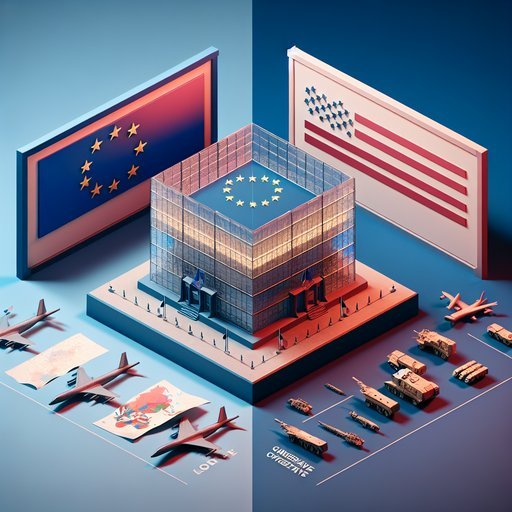
In recent days, a heated debate has emerged on both sides of the Atlantic over policies influenced by right-wing ideologies. The European Union has announced the creation of an official body to scrutinize the funding of nonprofits, a move driven by right-wing forces eager to increase oversight of NGOs [1]. Meanwhile, in the U.S., discussions revolve around military strategies concerning Iran, with Trump publicizing his conversation with Tucker Carlson about the issue, adding fuel to the existing ideological divides [7].
The EU Parliament's decision to probe NGO funding has triggered ideological debates within the region. Right-wing factions argue that increased scrutiny is necessary to ensure transparency and accountability within nonprofit organizations that wield significant influence [1]. Opponents, however, fear that this could lead to the stifling of dissent and restriction of freedoms for groups that often challenge the political status quo. This policy move reflects broader tensions in Europe where right-wing parties continue to gain ground by prioritizing national security and financial accountability over liberal values.
In the United States, differing opinions on foreign policy have come to the forefront as former President Donald Trump shared private conversation details with Tucker Carlson, discussing Iran's ongoing situation [2]. With Israel intensifying aerial attacks on Iran to dismantle its nuclear capabilities, American right-wing factions advocate for strong defense alliances while cautioning against isolationism [3]. This has sparked a debate about America's role on the world stage, with some believing a more restrained approach is needed to avoid overextension, while others argue for active engagement to counter perceived threats. Public opinion in Israel mirrors these divides, as recent surveys indicate significant support among Israeli Jews for military actions against Iran, including from those who identify with the left-wing [4].
Meanwhile, Israeli Arab citizens show vast opposition to the war, highlighting the complex ethnic and political frictions within the country [4]. Such divides underscore the broader global struggle to balance national security interests with peace efforts. Adding another layer of complexity, Elon Musk's recent comments on his AI chatbot, Grok, have sparked controversy over misinformation and right-wing extremism [5]. Musk's intention to alter his AI's portrayal of right-wing terrorism has raised ethical concerns about science's role in shaping political narratives.
As these debates unfold, both Europe and the U.S. face ongoing challenges in navigating the influences of right-wing ideologies on policy making.
Sources
- EU Parliament creates official body to probe NGO funding (POLITICO.eu, 2025-06-19)
- Trump Shares Details of His Private Call With Tucker Carlson About Iran (Newsweek, 2025-06-18)
- Now is Not the Time for Unconstrained Isolationism (Americanthinker.com, 2025-06-19)
- Most Israeli Jews back the Iran war. Among Arab citizens, the numbers are vastly different (Haaretz, 2025-06-19)
- Musk Says Grok Will Be Fixed After It Tells the Truth About Right-Wing Terrorism (Rolling Stone, 2025-06-18)
























